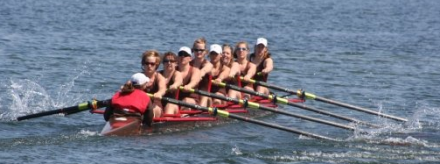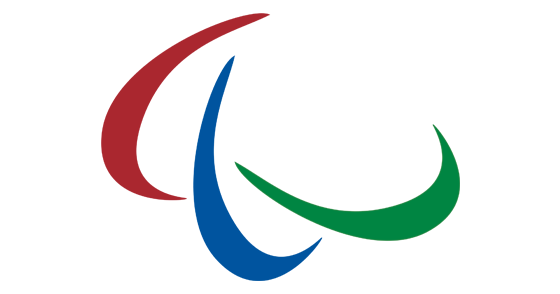Abortion rights, women of color, and LGBTQI+ people are under attack. Pledge to join us in fighting for gender justice.
On National Girls and Women in Sports Day, I’m Happy to Be a Statistic
There are a lot of statistics floated around on National Girls and Women in Sports Day showing how girls benefit from participating in sports. For example, girls who play sports have higher levels of self-esteem, lower incidences of depression, have more positive body images, increased labor force participation in high-skill, high-wage jobs, and the list goes on. As I think about my four years competing on my college’s crew team, I realize that my story is in no way unique—I am just another example of a girl who has sports to thank for who I am today.
 I joined the crew team sort of by chance. After growing up on the West Coast, I went to college 3,000 miles from home where I knew nobody. Lucky for me, on freshman move-in day, an upperclassman came around my hall handing out fliers advertising a “Crew Team Informational Meeting.” My roommate had been on her high school’s crew team and encouraged me to go to the meeting. Eager to make friends, I agreed. That was arguably one of the best decisions I’ve ever made.
I joined the crew team sort of by chance. After growing up on the West Coast, I went to college 3,000 miles from home where I knew nobody. Lucky for me, on freshman move-in day, an upperclassman came around my hall handing out fliers advertising a “Crew Team Informational Meeting.” My roommate had been on her high school’s crew team and encouraged me to go to the meeting. Eager to make friends, I agreed. That was arguably one of the best decisions I’ve ever made.
At that first information meeting, the coach of the women’s rowing team approached me and said “I hope you’ll join the team. We need tall women.” I was the tallest girl in school growing up and never liked it. There weren’t a lot of girls (or boys) above 6 feet tall, so I always stood out. Crew gave me confidence in my height for the first time in my life, beginning with that very first informational meeting and growing stronger over the course of four years.
In addition to towering over most of my classmates, I was also painfully shy for much of my childhood—so shy that I apparently didn’t talk to people until I was 4 years old, and even after that it took a lot of prying. However, after my four years on the crew team I think very few people would call me shy today. Having never played a team sport before, the crew team was my first experience being around a group of girls that supported me 100% and always had my back. I gained life-long friends and their support enabled me to be myself without worrying about what others thought and gave me confidence in my abilities in crew, school, and other areas of life.
Rowing also taught me perseverance and made me a tougher person—skills I have carried with me years after college. Rowing races are typically 2000 meter sprints that last about 7 minutes. Those 7 minutes can seem like an eternity and a sprint pace seems impossible to maintain. Slowing down was never an option with teammates in front and behind me in the boat, so I had to come up with alternatives. One of those alternatives was to break down 2000 meters into 4, 500-meter chunks to make it seem more manageable. Six years later, I still often find myself approaching real life situations with that same attitude. When I took the bar exam this summer, I found myself approaching the 4, 3-hour blocks of testing in a similar way. When a fellow test-taker complained that we still had 9 hours of testing left, I could tell myself that I only needed to focus on the next 3-hour block, not allowing myself to feel overwhelmed.
I could go on and on about the value I got out of being on the crew team in college. However, none of that would have been possible without Title IX. Unfortunately, too many colleges and universities still do not provide women the equal athletic opportunities Title IX mandates. Without these equal opportunities, many girls won’t have the same chance I had to experience the many benefits sports can offer—both during college and throughout their lives.





